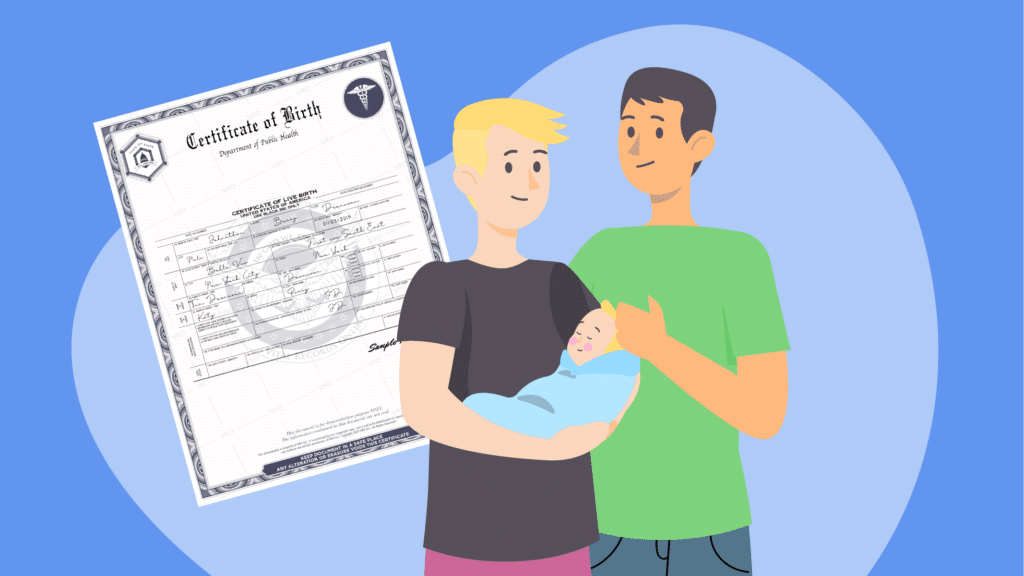Assisted reproduction has provided countless individuals and couples with the opportunity to fulfill their dreams of having children. If you have welcomed a child into your family through assisted reproduction, it’s important to understand the process of obtaining a birth certificate for your child. This article will guide you through the steps involved in obtaining a birth certificate for a child born via assisted reproduction, ensuring that their birth is properly documented and recognized.
Understanding Assisted Reproduction
Before diving into the process of obtaining a birth certificate, let’s first understand the concept of assisted reproduction. Assisted reproduction refers to various medical techniques and procedures that assist individuals or couples in conceiving a child. These techniques can include in vitro fertilization (IVF), sperm or egg donation, gestational surrogacy, and other fertility treatments.
Establishing Legal Parentage
When it comes to obtaining a birth certificate for a child born through assisted reproduction, establishing legal parentage is crucial. The laws regarding parentage and birth registration may vary by jurisdiction, so it’s important to research and understand the requirements specific to your location. Here are some common scenarios:
Genetic Parents
If both genetic parents are legally recognized as the child’s parents, the process of obtaining a birth certificate is typically straightforward. The genetic parents’ names will be listed on the birth certificate, and they can follow the standard birth registration process.
Donor-Assisted Reproduction
In cases where a donor was involved in the conception process, the laws surrounding parental rights and birth registration can be more complex. Depending on the jurisdiction, there may be specific requirements to establish legal parentage, such as signing a donor agreement or obtaining a court order. Consult with a legal professional specializing in reproductive law to ensure compliance with the necessary legal steps.
Gestational Surrogacy
When a child is born via gestational surrogacy, the birth certificate process may involve additional steps. In many cases, the intended parents will need to obtain a pre-birth order or a post-birth order from the court to establish their legal parentage. This order will allow them to be named as the child’s parents on the birth certificate.
Required Documentation
To obtain a birth certificate for a child born through assisted reproduction, you will likely need to provide specific documentation to the vital records office or relevant authority. Here are some common documents that may be required:
- Medical records: Gather relevant medical records, including records of the assisted reproduction procedures, confirmation of pregnancy, and any legal agreements or contracts involved.
- Identification documents: Prepare identification documents for both parents, such as passports, driver’s licenses, or birth certificates.
- Surrogacy or donor agreements: If applicable, provide copies of any surrogacy or donor agreements that establish the legal rights and obligations of the parties involved.
- Court orders: In cases involving legal parentage orders or court-ordered parental rights, including copies of the relevant court documents.
Contacting the Vital Records Office
Once you have gathered the necessary documentation, contact the vital records office in your jurisdiction to inquire about the specific requirements and process for obtaining a birth certificate for a child born through assisted reproduction. They will provide you with the necessary application forms and guide you through the registration process.
In conclusion, obtaining a birth certificate for a child born through assisted reproduction may involve additional steps and documentation compared to traditional births. It’s essential to understand the legal requirements and processes in your jurisdiction to ensure proper documentation and recognition of your child’s birth. Consulting with legal professionals and contacting the vital records office will provide the necessary guidance and support throughout the process. By following the appropriate steps and providing the required documentation, you can successfully obtain a birth certificate for your child born through assisted reproduction, solidifying their legal status and ensuring their rights as a recognized member of your family.

